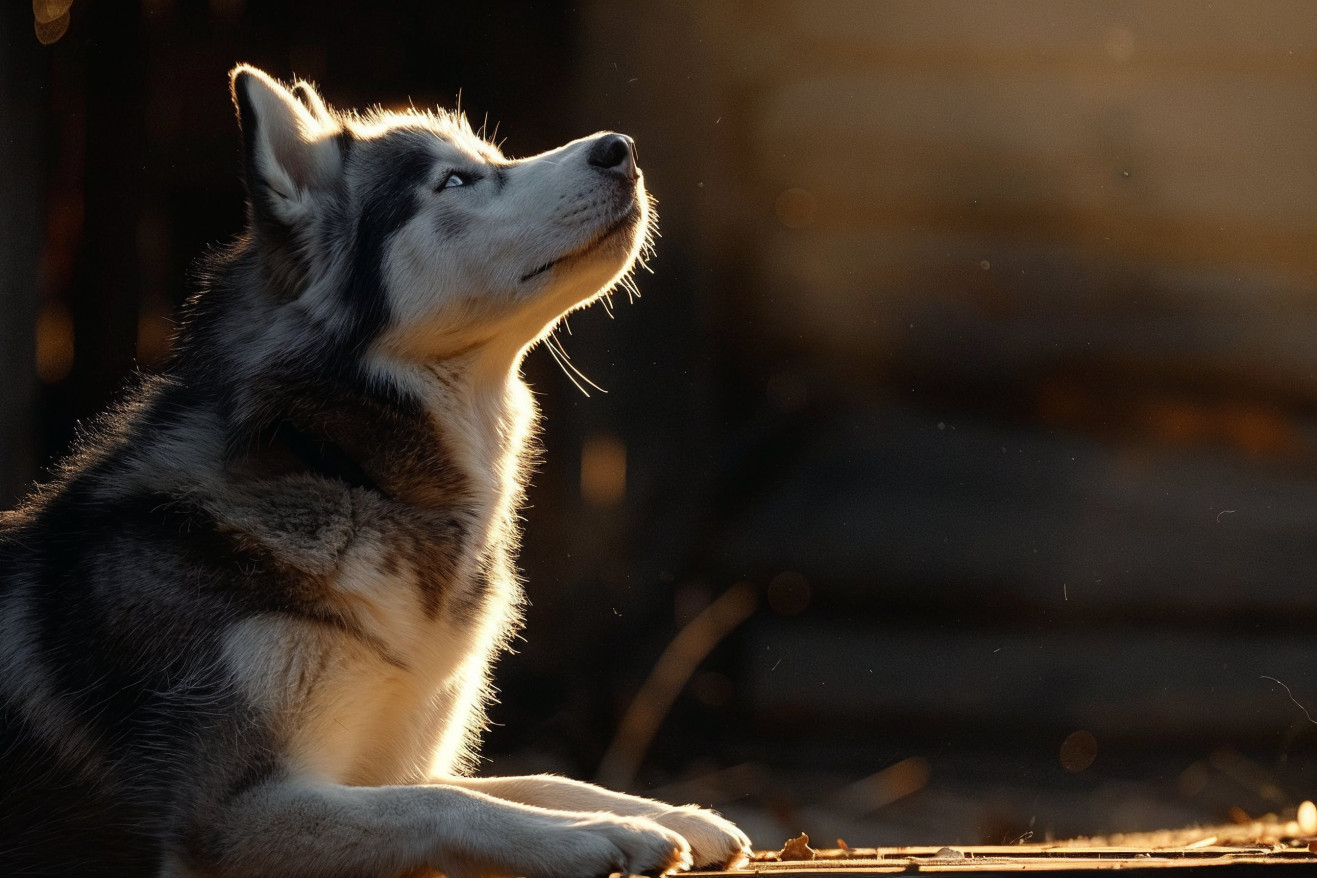Why Do Dogs Howl at Night? Exploring the Roots of Canine Vocalizations
3 May 2024 • Updated 2 May 2024

While it may be a bit of a mystery to dog owners, the tendency to howl at night is a holdover from dogs' days as pack animals who needed to communicate over long distances. Dogs may howl at night for a variety of reasons, including territoriality, loneliness, group mentality, or to summon pack members, and it's their way of "singing" amongst neighborhood "packs" at quiet times.
To better understand why dogs howl at night, we'll delve into studies by animal behaviorists, wolf biologists, and other researchers to uncover the possible causes and circumstances that lead to nighttime howling. By considering the evolutionary history of wolves and the idiosyncrasies of dogs, we can gain insight into this spooky yet harmless behavior and find solutions to help our four-legged friends if they tend to howl too much when the sun goes down.
Why do dogs howl at night?
Evolutionary History: Howling as a Primitive Form of Communication
The study also explains that howling was originally a means of long-distance communication within a wolf pack. Dogs, as descendants of wolves, have kept this form of communication to maintain social relationships and mark their territory.
In fact, some of the oldest dog breeds, like the Siberian Husky, Chow Chow, and Basenji, are more likely to howl than newer breeds like the Golden Retriever. And, regardless of breed, dogs tend to howl more as they get older.
In addition to helping dogs express themselves, mark their territory, and maintain social relationships, howling is a form of primitive communication that helps dogs maintain their social structure. This is because howling helps dogs keep track of each other and avoid encroaching on each other's territory, according to the study from the Hungarian university. This primitive behavior is a reminder of the deep connection between domesticated dogs and their wild ancestors.
Triggers and Contexts: Why Do Dogs Howl at Night?
Dogs are known to howl at night in response to high-pitched sounds such as sirens or alarms, according to research by dog trainer Elizabeth Dimit of Dogtopia. Separation anxiety or loneliness when left alone can also lead to excessive howling, as dogs may use it as a way to seek attention or indicate needs like hunger or bathroom breaks, as noted by Dimit.
Noises or disturbances outside can lead to territorial howling, as dogs attempt to protect their home from potential threats, says Dr. Rebecca Greenstein, chief veterinarian at Kleinburg Veterinary Hospital. In some cases, dogs may also howl to get a reaction from their owners, which can lead to the behavior being reinforced, according to Dimit.
Recognizing the different triggers and contexts that can lead to nighttime howling is important for dog owners who want to help their pets overcome this common vocalization. By working with professionals and looking for potential causes, dog owners can better address excessive howling.
When to Worry: Medical Conditions and Excessive Howling
If your dog starts howling out of nowhere, or if the howling becomes constant or extreme, it could be a sign of an underlying medical condition or injury, per PetMD. Dogs may howl to express pain, discomfort, or anxiety due to an illness or injury. If your dog is howling and you notice other symptoms like a lack of energy or a lack of appetite, it’s time to take them to the vet, according to VCA Animal Hospitals.
In addition, if your dog is experiencing severe separation anxiety, they may howl excessively and engage in destructive behaviors, according to WebMD. If you’re concerned about your dog’s howling, especially if it’s out of the ordinary or you can’t seem to get it under control, you should consult your vet to rule out any medical conditions and to get help with any behavioral issues.
Training Techniques: How to Stop Problematic Howling
First, make sure there are no underlying medical conditions or other issues that could be causing the howling, according to PetMD and VCA Animal Hospitals. Then, use positive reinforcement to reward quiet behavior and ignore the howling, as suggested by Wag!.
Make sure your dog gets plenty of exercise, mental stimulation, and playtime with interactive toys to prevent boredom, which is a common cause of howling, according to Wag! and James Wellbeloved. In addition, desensitization training can help dogs learn to be less reactive to common triggers like sirens, according to James Wellbeloved.
If the problem continues, consider working with a certified dog trainer or behaviorist, according to Wag!, wikiHow, and PetCube. However, with the right training and environmental changes, problematic howling can be stopped.
Living in Harmony: How to Deal With Nighttime Howling in Suburban or Urban Areas
Making sure that dogs get enough exercise, play, and mental stimulation during the day can help them get to a point where they are ready to rest at night and less likely to howl, according to Care.com. Leaving interactive toys, puzzles, or treat-dispensing toys can also help keep dogs entertained and less likely to howl.
The use of white noise machines or playing calming music to drown out external noises that may trigger howling can also be helpful, according to the American Kennel Club. It's also important to make sure that dogs have a safe, comfortable place to sleep and feel secure when they're home alone.
For dog owners, especially those who live in close quarters in suburban or urban areas, it's important to make sure that you're taking steps to address excessive howling that may be disrupting neighbors. With the right training and environmental changes, dog owners can address nighttime howling and make sure that they're living in harmony with their neighbors.
Conclusion: How to Deal With Howling
Howling is a natural, instinctive behavior that dogs inherited from their wolf ancestors. Although some howling is perfectly fine, excessive or problematic howling should be dealt with.
By learning about the things that set off howling and the situations in which it happens, you can better manage howling at night. Training, exercise, and changes to the environment can help reduce excessive barking. Seek out professional help if your dog's howling is extreme or uncontrolled.


